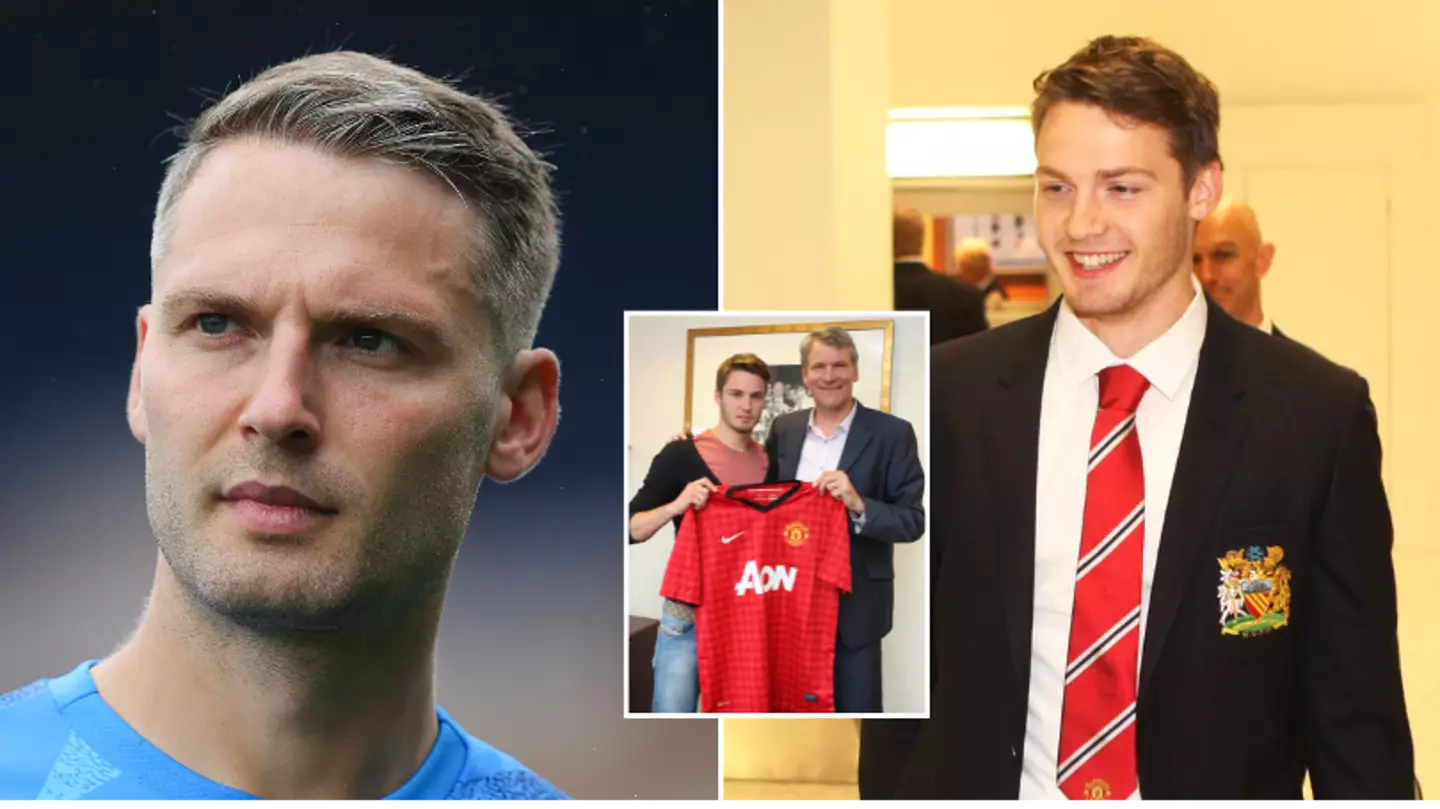
There are still a lot of things we don't know about Nick Powell. And for good reason.
Since arriving on the scene in late 2010, the former Crewe, Manchester United and Stoke City midfielder has only agreed to a handful of sit-down interviews. In fact, after telling somebody who once worked at Wigan Athletic that I'd be speaking to Powell, I was met with a surprised look, as if to say, 'Well he never spoke to our media team'.
Powell is – and always has been – a very private person. Unlike a growing number of footballers who tend to enjoy the limelight and everything that comes with it, he would prefer to keep a low profile. Rather than have someone carefully curate every social media post, the 29-year-old tends to avoid it altogether.
Advert
His last tweet? February 2021. His total number of Instagram posts? Two.
But make no mistake about it; Powell is incredibly open and honest when he does decide to speak publicly. He rarely holds back when giving his opinion but an overriding modesty often shines through, especially when talking about himself. For example, Powell describes his own story as a "boring one" but in reality, that couldn't be further from the truth.
It is this refreshing outlook that makes him different from so many. He takes full responsibility for a failed spell at Manchester United and says he would change everything, including his attitude and professionalism, if he could go back and do it all again.
From growing up at boyhood club Crewe, where he would often eat McDonald's before delivering performances that would attract interest from some of England's elite, to drinking red wine and playing Call of Duty until 2am in the morning throughout Wigan's promotion-winning season.
Advert
Powell is at ease with his career and the many lessons learned along the way.
"Before the age of 25, I was never in the right frame of mind," he tells SPORTbible. “I never wanted to help people. I was so selfish. I wanted to make as much money as I possibly could, retire, and be comfortable because I knew I was a very tight man. But when I had kids and went to Stoke with Nathan Jones, my whole outlook on life changed."
After a journey full of ups and downs, Powell wants to use his knowledge and expertise to help others; all while trying to achieve promotion with League Two side Stockport County.
He wants to make a difference, both on and off the pitch.
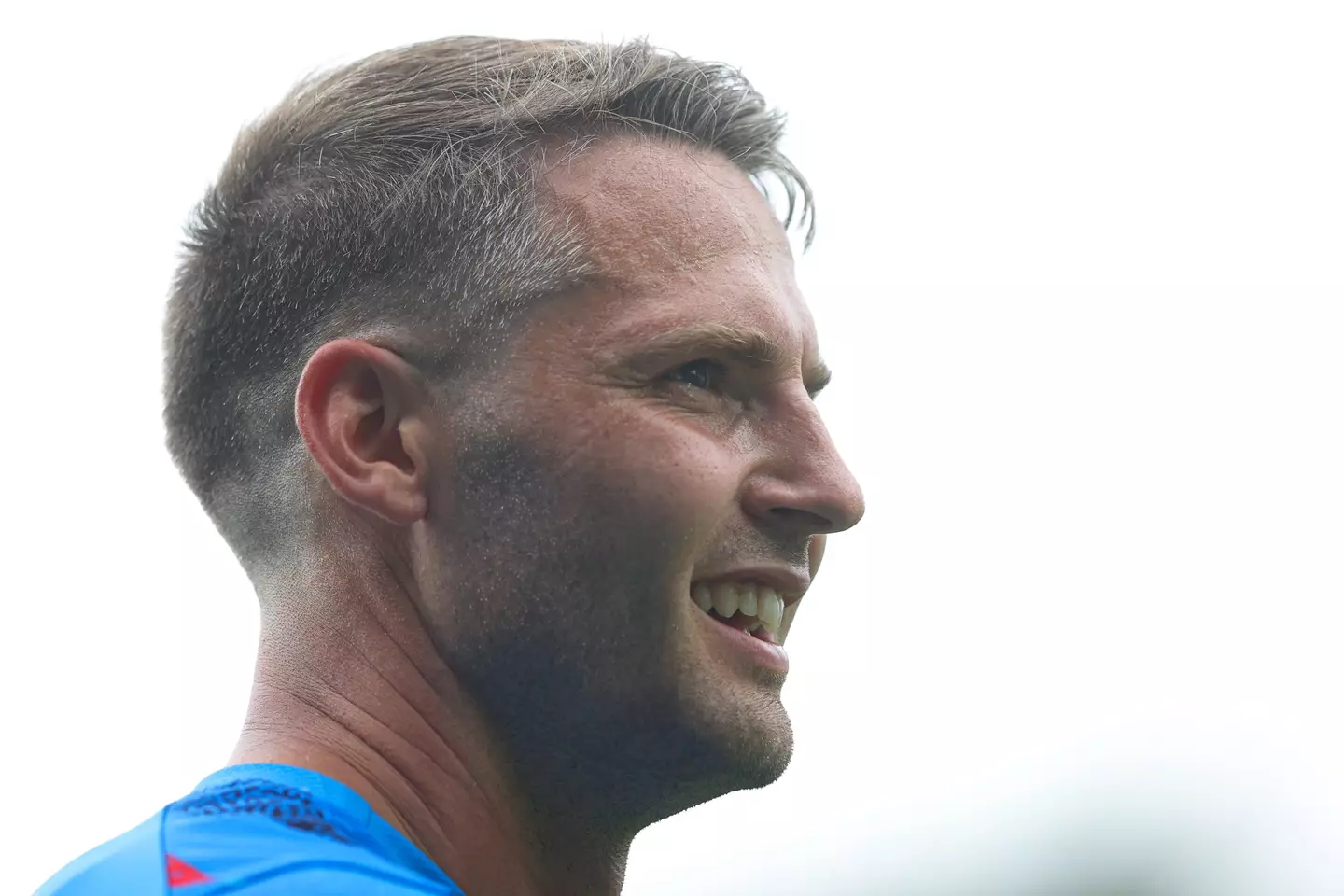
For the past year or so, Nick Powell has juggled a career in professional football with studying. "My wife and I laugh about how hard it is to juggle exams with three kids, their social calendars and the housework," he says. "We often find ourselves together, gone 8pm, with our heads in a textbook.”
Advert
The experienced midfielder is currently working towards becoming an adviser at Premier Wealth Solutions — a financial planning and investment company run by his wife Emmelia. Here, he will aim to provide support to players throughout their career.
To get a grasp of why Powell is doing this, you need to understand his mindset.
Life after football – and the uncertainty it can often bring – is something that’s lingered for a long time. “I know how it's ruined a few people and even myself," he says. "I’ve gone through stages where it's ruined my football because I'm thinking, well, if I don't perform this Saturday, I might not get another contract. Or if I don't do well, I'll get half the money at my next club.”
Those tensions intensified again this summer, when he was left in limbo after being released by Championship side Stoke City. It was an uncertain period for everyone. Powell "hated" being unattached to a club but his decision to prepare for such a formality, back in 2018, helped ease the pressure.
Advert
"From the age of 18 to 22, I accumulated quite a bit of wealth during my United days," he recalls. "And my girlfriend at the time said, 'My mum is a financial advisor, you should talk to her'. I'm going, 'What do I need a financial advisor for? I'm 22 years old with a lot of money, I don't need someone to tell me how to save.'
“I eventually had a conversation with her mum and she said, 'Cash is great, but inflation is going to kill it. You save for five years but what you've kept in those five years isn't going to be what it was worth previously.' Obviously, at 22, I'm asking, 'What the f**k is she on about? I don't understand what you mean by that.'
"I wasn't even trusting my wife's mum. I still didn't want to give her money."
Instead of taking that advice, Powell would invest in the property market because he presumed that's just what footballers did at that stage of their life. "Everyone talks about real estate because it's such an easy way but it's not god-given that you're going to succeed. I didn't know what I was doing."
Advert
Two years later and that discussion about finances with his mother-in-law started to make more sense – even if he did have doubts at the time. He was starting to appreciate that creating a financial plan and setting targets would allow him the ability to support a sustainable income, both during and after his career.
At the age of 24, Powell decided to become more open to advice in general. "She was telling me what I'd made, what I hadn't made; all the ins and outs,” he says. “Then, when I started having kids, it was, 'This is what you'll save for your kids with ISA accounts.'
"I don't want my kids to feel the stress that I had to. I was just fortunate enough to go into football.”
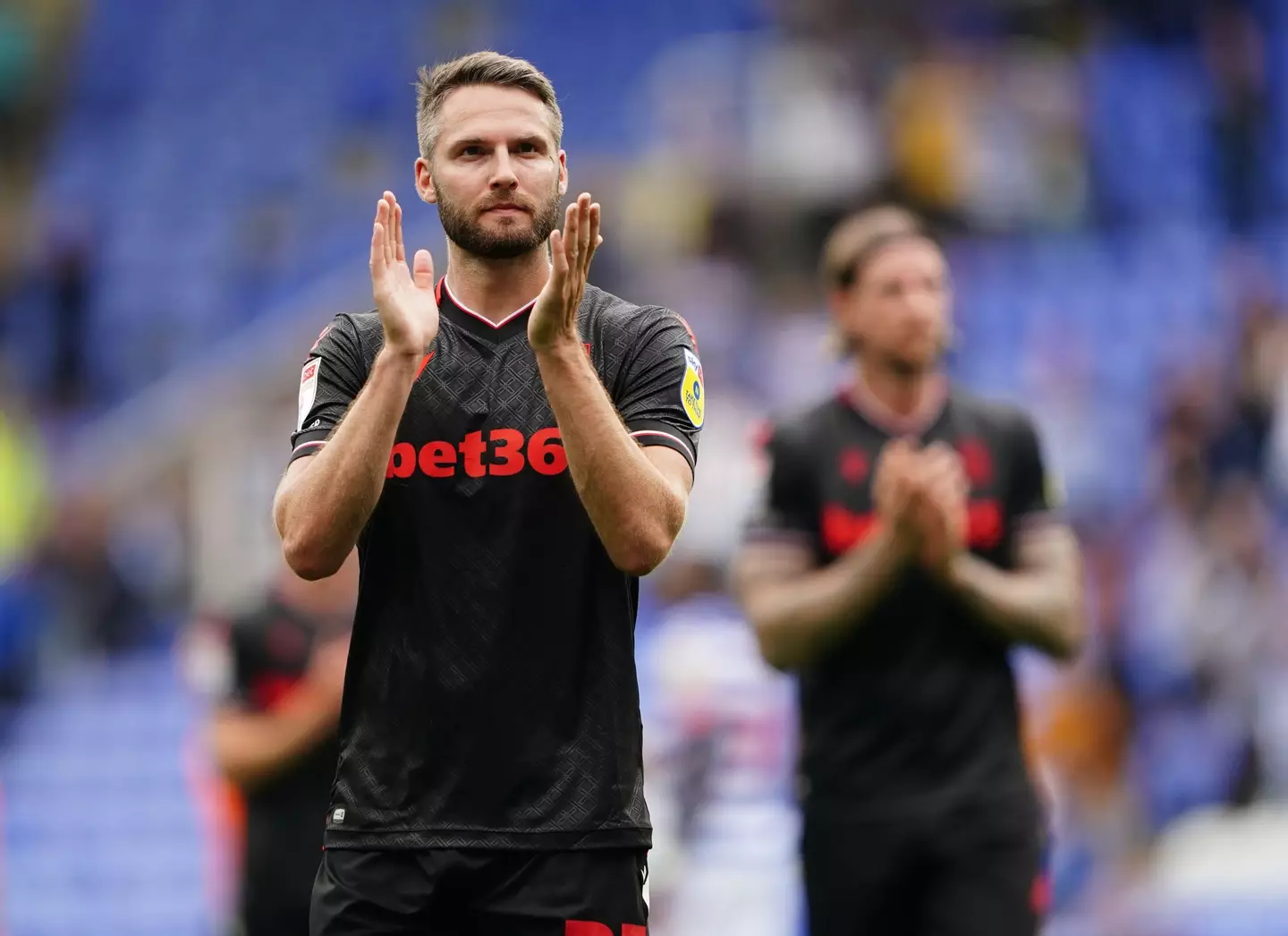
Powell, who has lived through more challenges than most during a decade-long career, looks back on those times with a mature outlook. He wants to use those experiences, good or bad, and give those that need it a gentle nudge in the right direction.
"Through the business, our plan is to go into football clubs and talk to their 18-21-year-olds, so we can prepare them from an educational side," he explains. “From a young age, you see this typical lifestyle and automatically think what a life that is. But what about the future?
“Premier League players get such a nice wage but if they don't look after themselves, their lifestyle is never going to match what they’ll get paid after retirement. It’s all about trying to get the best of both worlds. Keep your lifestyle and spend money, but let's find a middle ground of maintaining it for 20 years after.”
With the absurd amount of cash being thrown around in the modern game at present, money management is more crucial than ever. Speaking to The Times last month, Arsenal midfielder Jorginho urged players to be more cautious when it comes to their spending habits.
A study from Xpro, a charity that supports former professional footballers in their life after football, found that three out of five Premier League players – who earn an average of £30,000 per week – declare bankruptcy within five years of retirement.
Powell has seen it happen first-hand and wants to prepare players for life after football as early as possible.
"I find it tough to see them not saving, or not looking ahead for the future,” he says. “You don't want to be 35 with three kids down saying, 's**t where's my next income coming from?' because it's only going to put stress on your marriage and the relationship with your kids.
"The stats around Premier League footballers are mad. A high percentage go bankrupt, so why would you not want to push someone early enough to say, 'Listen, go live your life and have fun, be a good footballer and earn a lot of money but just put a little bit away for the future.’"
His ambitions to become an adviser are unconventional. Many current players will work in football for years to come; whether that be as an agent, scout or coach. And Powell hasn't ruled out working in football as he thinks the satisfaction you'd get from making someone a good player into a brilliant one would be "fantastic".
But the midfielder has raised questions over certain jobs in football and the financial implications attached to those roles.
“It's funny. I've always said I never ever want to be involved in football after football for two reasons," he explains. "One is I don't like the industry but two, when you stay within football, let's say a member of the coaching staff or a kitman, the hours are so much worse for obviously less pay. And you think, 'Why would I do that?'
“It sounds ridiculous. Why would I want to do more hours in an industry that I think is toxic for less money? I would hope the financial side does well enough that I don't have to delve into anything else."
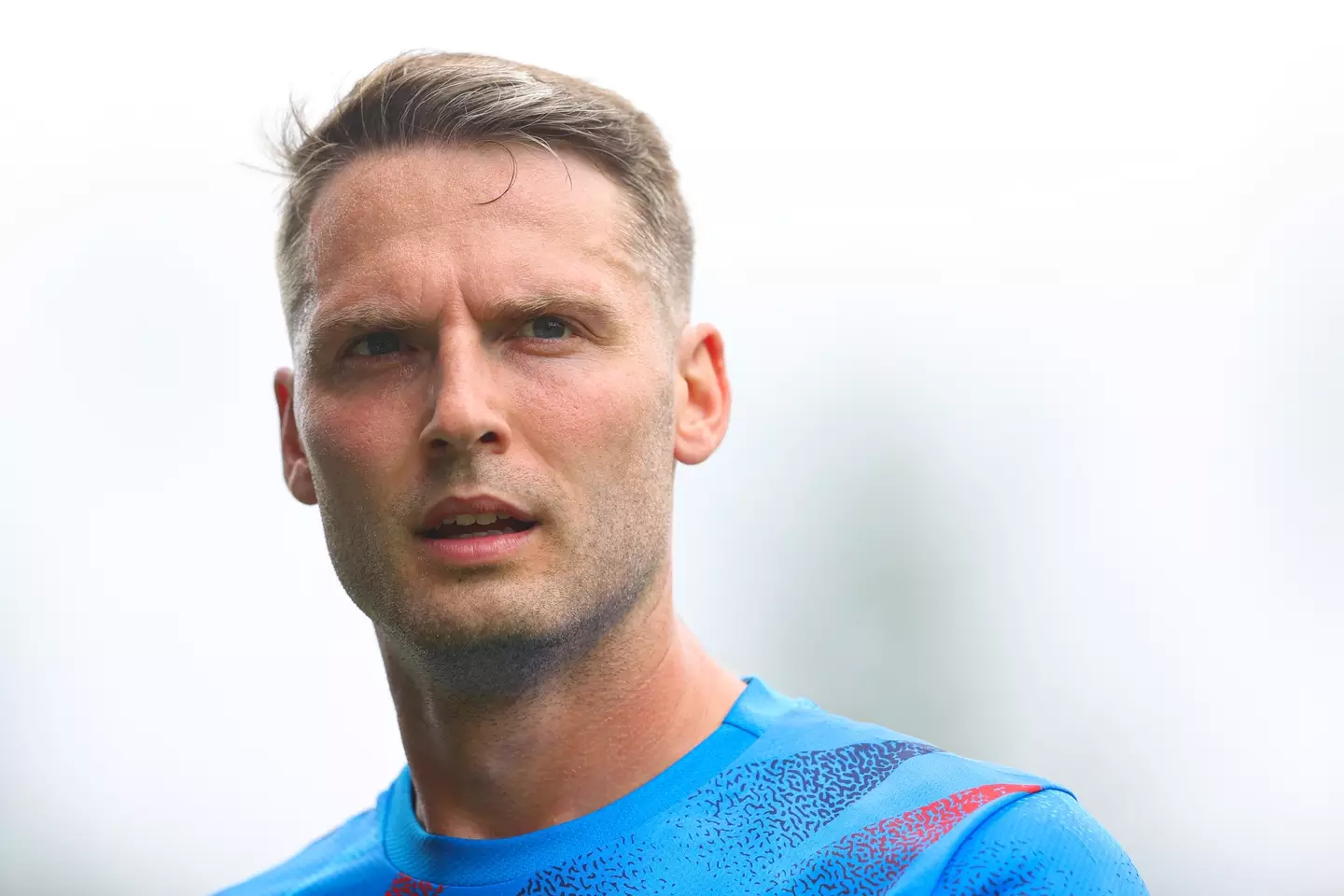
As you can probably tell by now, Powell's relationship with football has been a turbulent one. And nothing sums that statement up more than his revelation about retirement.
"There’s been many times when I've just thought, 'You know what this isn't for me'. If I had made a lot of money really early on, I probably would have sat down with my wife and said, 'What do you think?'. From 19 to 29 now, I've asked myself every year, 'Do I really want to keep doing this?'
"But I think the love of the game will always hit you, whether you play one game a season or 46 games a season. I think just being on that pitch once makes you fall back in love with football each time. After an injury, I want to get back on the football pitch to prove I'm still good."
From the outside looking in, some will accuse Powell of taking the game for granted. Less than 0.5 per cent of people that attempt to become a professional footballer will succeed, with a much smaller number going on to play for the world's most supported club.
But when all is said and done, his story is a complex one. For example, how many people know that he was forced to undergo surgery during his debut season at Manchester United after doctors found a non-malignant tumour at the bottom of his spine?
It was an injury that forced him to completely change his playing style.
"I'd never really had an injury before so I didn't know how to recover," he admits. "I came back and I couldn't move properly. It took me ages. I was never the same again after that. I think the lucky thing for me is, because I believe I'm quite good at football, I just learned to play around it.
"I wasn't as quick or mobile but because I back myself within football, I can do different things in the game now. And that's probably why I've managed to keep going. I've navigated myself through football after so many injuries. I'm quite proud of myself actually.
"Other people have retired, and others have gone a lot lower than I have. I've managed to sort of maintain a level on a Saturday.”
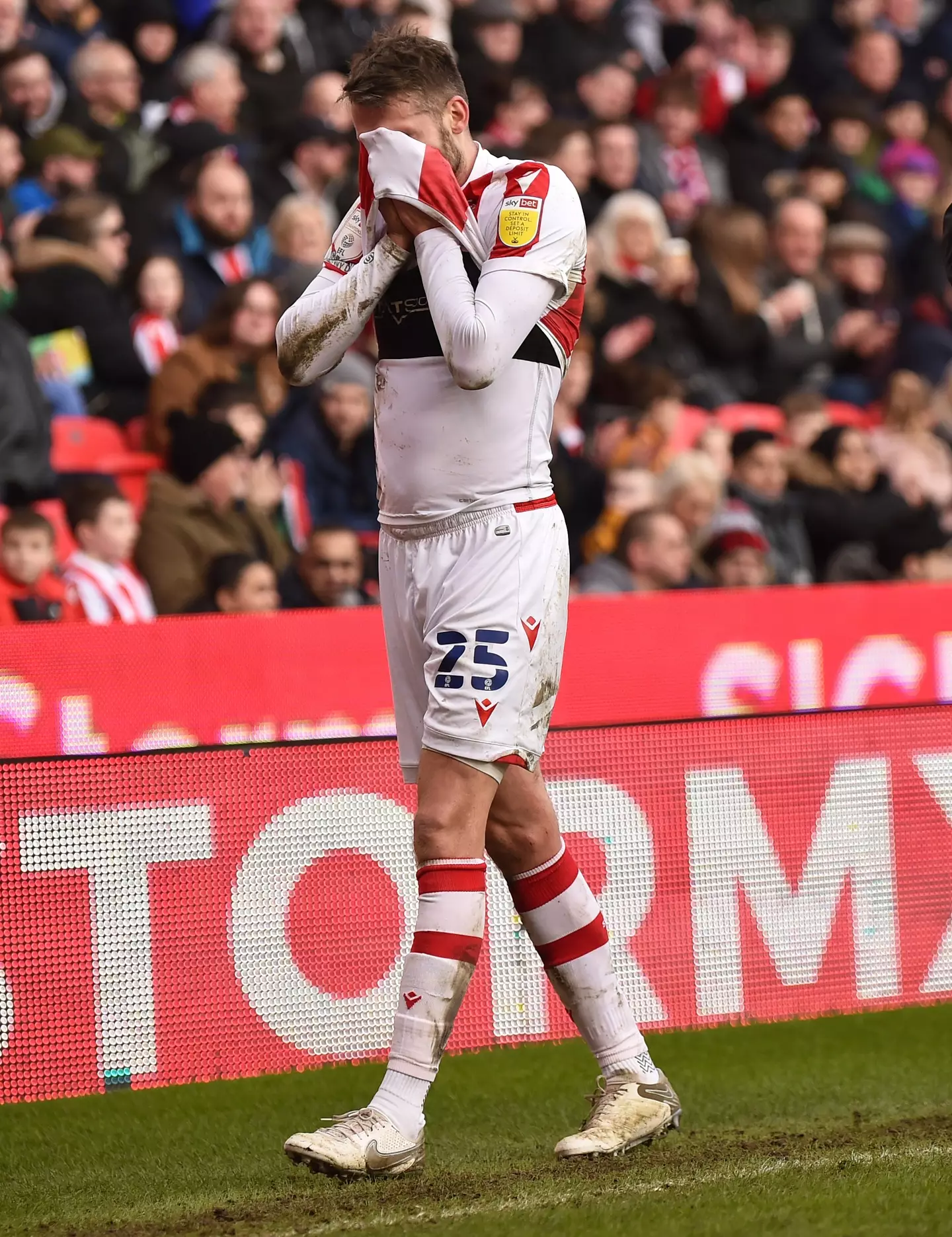
Before that significant operation, Powell would arrive at Old Trafford with a growing reputation. A host of top Premier League clubs, including Chelsea and Arsenal, made their interest known but a chat with Sir Alex Ferguson would convince him to join United, although things didn’t get off to the best of starts.
"Obviously, you hear the papers and Chinese whispers,” he says about those transfer rumours in 2012. “Back in them days, social media wasn't rife. You'd get your news through papers. I mean, my dad would cut out a snippet from a newspaper and show me.
“The biggest thing I remember at that time is when Sir Alex left a voicemail on my phone. It was an unbelievable feeling. I was with my friends at the time and I'm letting them listen to it. And we're all buzzing. But because I was so bad with technology, I deleted it by accident.
"I remember thinking, 'Oh, my days. It's the greatest thing ever. And I've deleted it’”.
He'd accidentally deleted a voicemail from one of the greatest managers of all time but further discussions with Ferguson would take place in the coming weeks. His overall presence and aura during those meetings left a lasting impression.
"When someone tells you that you're going to be involved with the first team – and obviously he had all the power – I knew United was my future," Powell says. "After meeting him, I knew it was going to go that way. He was a fascinating person."
On the day he was presented as a United player alongside another new arrival, Shinji Kagawa, a delighted Ferguson described the teenager as an "exceptional talent" after months of scouting. A deal worth up to £6 million based on future success and appearances was reported.
Powell recalls that period in a typically modest fashion. “I imagine when they signed me as a player, United fans were thinking, 'Hold on a minute, where are the big hitters? Where’s the Ronaldo's?'
But Ferguson and his scouts clearly thought they’d spotted something special. In fact, the Scot handed Powell his Premier League debut on September 15, where he would repay his manager's faith by scoring from 20 yards in a 4-0 win over Wigan.
Speaking to MUTV after the game, the teenager said he wouldn't get carried away after such a memorable debut. "My dad will keep me in touch, I’ll tell you that," he smiled. "I’m just going to go home, have this great feeling and I’ll keep myself on the ground."
He was understandably ecstatic with a goal in front of 70,000 fans but soon, he would feel the notorious wrath of Sir Alex Ferguson for the first time.
“I'd just scored against Wigan and I got bullied into doing an MUTV interview after the game," Powell remembers.
"A big thing of mine was never doing interviews because one, I hadn't made it, and two, I was too shy in front of the cameras. I’ll take pictures all day. I don't mind. You just stand there and smile. But a camera, especially if it's live, then whatever you say is there forever. I think that’s the biggest thing that scared me most.
“Anyway, I'm 18 years old. It's my debut. They probably thought it would have been a nice piece.
"The next day, I walked past Sir Alex going for breakfast. I'm smiling. I'm just buzzing that I scored. But he then turns around and goes, ‘What the f**k are you doing an interview for?'
"I was like, 'Woah, woah woah. I didn't want to do it in the first place!' but he wasn’t having any of it. He said, 'You've not made it yet. I tell you when you can do things like that.' I've gone from buzzing to what the f*** is going on here."
Eric Steele, a first-team goalkeeping coach at United, was one of the few witnesses to his dressing down. "He [Eric] said, 'Don't worry. he's not angry at you. He's just in a bad mood about something.'
"Anyway, he [Ferguson] apologised to me two hours later. He said it wasn't my fault and was angry at something else. But in my opinion, he didn't come back to say sorry. It was more; he might have thought that would fester with me, so he came over and was like listen, something else was under my bonnet. We're sweet.
"Me being 18 at the time, I shrugged it off like I didn't really care... but I did. He's obviously done it to put me back down to earth. That was his way of saying you've not made it kid, you don't do things above your station at United. And I liked that. There was never anything that came out of camp at United. It was very private."
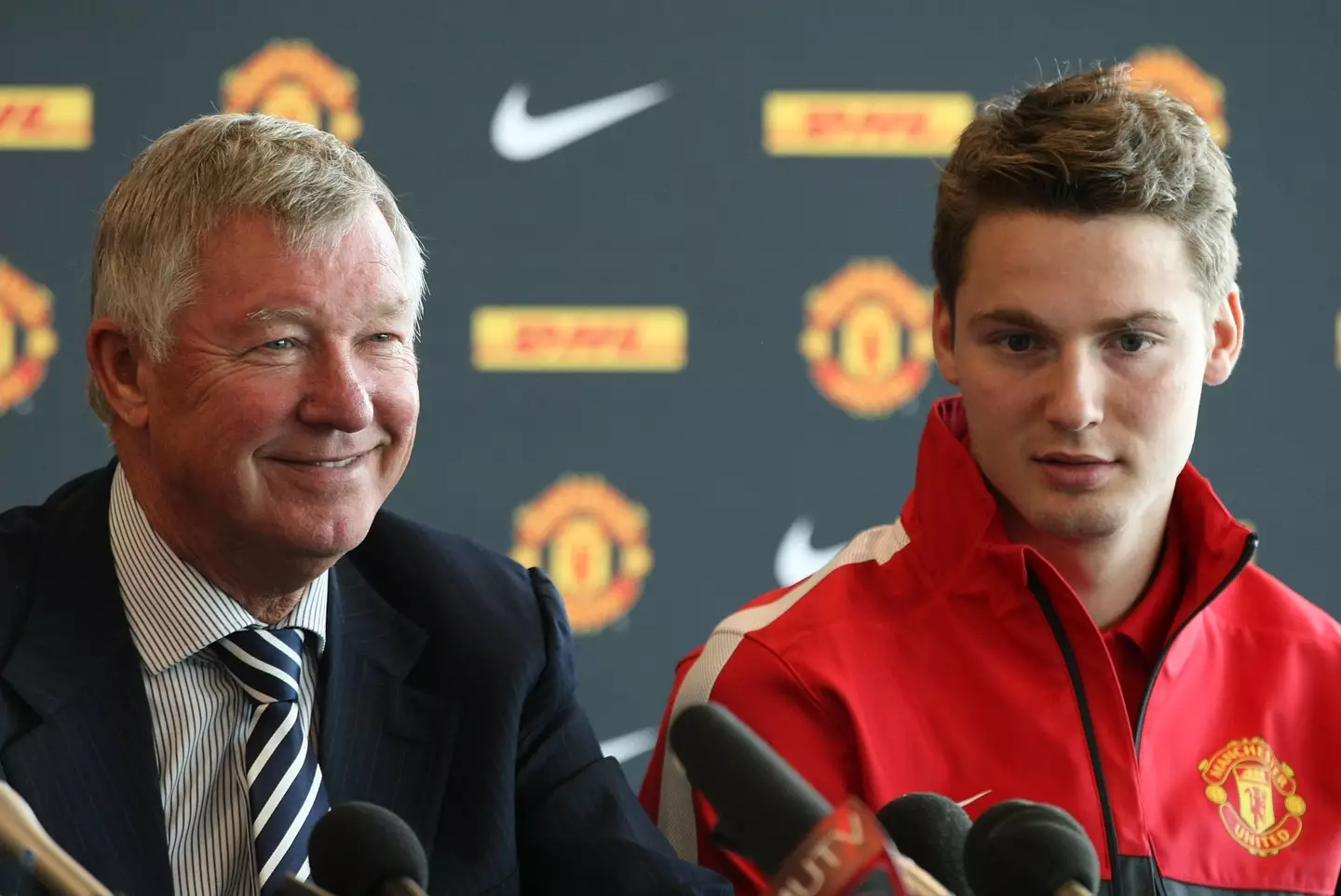
Powell would make six first-team appearances under Ferguson before having an operation to remove the non-malignant tumour on his spine. When he woke up in a hospital bed that day, the yellow breaking news card on Sky Sports would flash across the TV screen. 'Sir Alex Ferguson has decided to retire'.
By his own admission, Powell's career at Old Trafford went downhill from there. He does, however, take full responsibility for that downward trajectory. the midfielder knows he wasn't professional enough to compete at the very highest level.
“I wasn't a Manchester United player," he says, a decade on. "They were a machine. Everyone was a cog and it worked really well. I played football for the fun of it, whereas they played to win and that was probably the biggest eye-opener for me.
"And do you know what, I don't look back and go, 'Oh cry for me.' Now I'm older and I see things in a different light. I think, what an experience to see that day to day. At least I got to see what a top top team and a club looks like. And that's what I take from United.
“Listen, my career could have gone either way. I was very lazy until the age of 25. And that seven years probably kills you when you're lazy."
The word lazy is a strong term but Powell says he lacked professionalism more than anything. If there was a ball to be won in training or during a game, he would "chase the life out of it" but a lack of standards, both on and off the pitch, took a huge toll.
He almost detrained his body because he wasn't getting first-team minutes at United. "I didn't do extra running to make up for the lack of playing time, so when I did play, I'd be so many metres behind than what I should be in a week. My body couldn't handle a game," he admits.
"I would play five games in a row, and then have a little tweak of a hamstring which kept me out for two weeks. Or then I'd come back and play like I've missed two weeks of training and try to run for 90 minutes. It just wasn't working.”
Off the pitch, Powell's eating habits were also having a negative impact on his game. Sir Alex Ferguson, a manager who was relentless in his pursuit of perfection, was known for seeking ways to gain an advantage, with diet and nutrition being key.
Powell, meanwhile, recalls on one occasion having to take a stack of 15 Domino's Pizza boxes out of his apartment. “I didn't care about my diet until I was 25," he admits. "I remember at Crewe, I used to eat McDonald's after every game because McDonald's was around the corner.
"When I went to United, I didn't know how to cook so I used to have Domino's every day. I'd get to a point in my apartment where, I'm not joking, there'd be 15 boxes of Domino's stacked up. I'd be standing there like, 'Oh right, I best put these out in the bin.’
“But yeah, like I said, that's laziness. It's not professional. If you're that in love with football, and that in love with getting better, you either pay for a chef or learn to cook. I'm the tightest man alive so I'm thinking, 'I'm not paying someone to cook me some food in my own house.'
"I've always been labelled as someone with a bad attitude. And it wasn't that. I just wasn’t professional enough. I didn't know what was needed. I never had the mindset of wanting to be the best. My mindset was, get me on a Saturday and I'll hopefully do something good.
"Until the age of 25, my whole career was trying to find the biggest shortcut possible to make sure I could still play football."
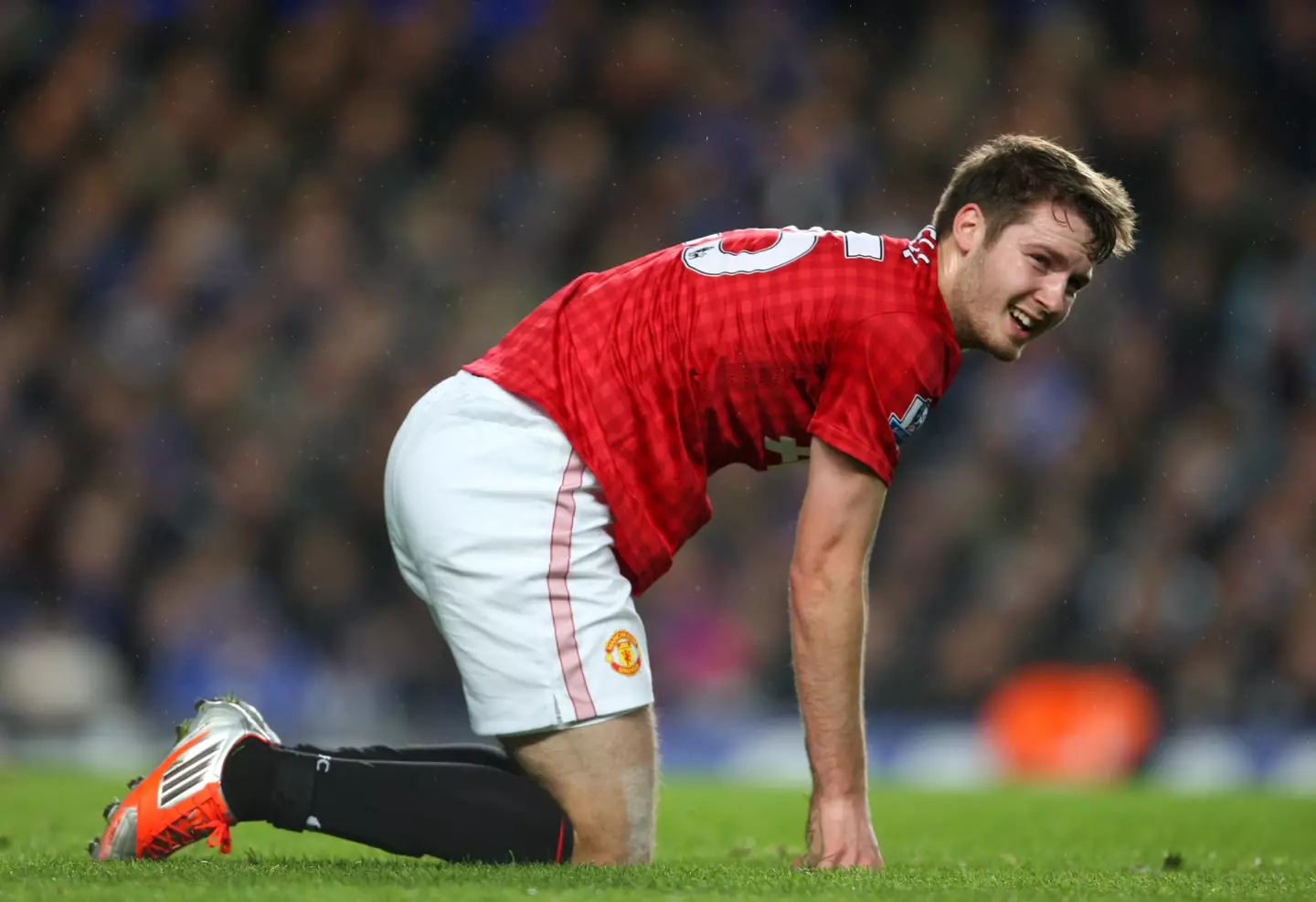
Many people remember their last day at a football club. Angel Gomes, for example, recalled tears streaming down his face as he left Carrington. His former United teammate, Jesse Lingard, was also emotional, and cried all the way home after saying his final goodbyes.
Powell's departure from Old Trafford was a little different, to say the least. Following a mixed bag of loan spells at Wigan, Leicester and Hull City, the midfielder was released from his contract in 2016 with just nine first-team appearances to his name.
He made his feelings clear about a return to Old Trafford during that loan spell at Hull. "I just said, 'Listen, I don't really want to go back to United. There's nothing there for me. And two months later I got a letter saying I was released. And that was that.
"It was one of them things that sound bad but It just didn't bother me. The failure of it wasn't a thing for me at the time. I didn't care. I'll go and play somewhere else. That was my mindset."
A decade later and Powell says he doesn't even count Manchester United as part of his career.
“I think the biggest thing for United fans is they think I had a bad attitude," he says. "They say I'm such a failure or a flop. But I'm like, I don't really count Manchester United as part of my career. It's a nice thing to have on your CV but listen, I only played nine games. It's not like I was a United player.
"People say, 'Oh you played at Old Trafford. You played for Man Utd' and I just say, 'Did I really? I made three starts and six sub appearances. It wasn't great. I just think, because it's such a big club people sort of go, 'Well most people don't get to do it' but I didn't really get to live it.
"I really appreciated the opportunity. I just didn't take it as seriously as I should have."
A decade on – and with a far more mature head on his shoulders – Powell says things would be very different if he could go back and do it all again.
At this point in the interview, you can really sense a twinge of sadness and regret when he speaks about how his time at the club ended.
“I'd change everything [about my time at United], especially my attitude towards it," he admits. "I was very nice. I'd go to training, try not to annoy anyone and just sort of fit in. I'd just do what I needed to do.
“It's the one I really don't like talking about because it sounds like I didn't get a fair chance, or it sounds like I'm crying about something. But listen, everything happens for a reason. I went there and didn't do very well. I'm the only one that fails from that. I'm the only one that doesn't gain anything from it. But yet everyone else wants to tell me I'm a failure. I already know that.”
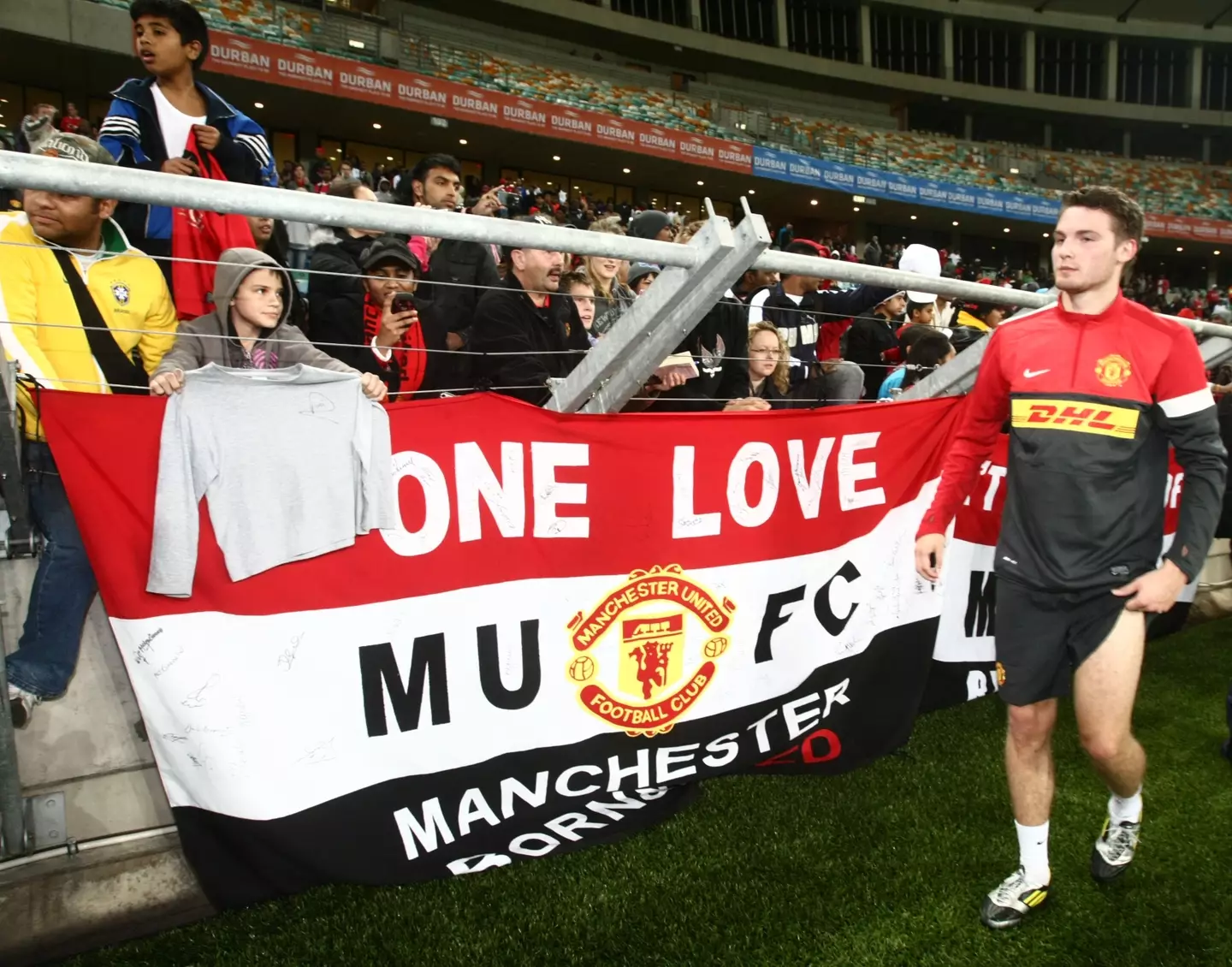
Powell was still only 22 when he decided to join Wigan Athletic. Here, he would show glimpses of why Ferguson took a gamble. On his day, the midfielder was far and away the best player in the Championship. “He is unplayable at times," said then-teammate Will Grigg at the time.
After playing a bit-part role at United with loan spells in between, Powell was playing some of the best football of his young career in spells but ultimately, a lack of professionalism would once again be his downfall, especially after Wigan suffered relegation.
"We went down to League One and I felt really low in my career," he says. "I was like, ‘Ah, do you know what, I'm not really arsed. If it carries on getting worse, then I'll just retire. And that's that.’
"We also had a good team. It sounds bad but I think we all knew we were going to get promoted. You could have that time to relax. You could have the extra drink if you wanted to. We had such a good year that I didn't feel like I needed to be professional.
“I won't name the person because I don't want him to sound like he's bad but, we used to train, go home, and play Call Of Duty until 2 am in the morning, drink red wine, and then go to work the next day. We’d train just enough to get through, play on a Saturday and because we had Sunday off, we'd get absolutely leathered, playing COD again.
"We literally repeated that for the whole of the League One season."
After earning promotion to the Championship, Powell was coming up against better opposition on a regular basis. And at times, he thrived under that pressure. He scored in Wigan's opening first three games against Aston Villa, Nottingham Forest and Sheffield Wednesday – a dream start to life in England's second tier.
But his form would decline as the season went on. Powell knows exactly why.
“Things changed when I went to the Championship," he admits. "The physicality was different. You had to recover better. I had to stop drinking, and stop playing Call of Duty until 2 am. But because I had done it for a year, my body wasn't used to the hard work it needed.
"I broke down quite a lot the year after we achieved promotion, just because I wasn't used to the intensity. I was being lazy the season before. But I had a great time doing it. That was the issue.”
Wigan survived relegation, with Powell scoring eight goals in 32 games. Although a lack of consistency was still a problem, the midfielder caught the eye of many that season, including Stoke City manager Nathan Jones, who wanted to overhaul his squad after a mid-table finish in the Championship.
Everything, including his work ethic and mentality to life, changed under Jones. "I'd go in early and then leave late because I ended up liking the hard word," he says. "I'd go in the gym after training, go in the ice bath and recover properly. I'd always do extra work. I would make sure my body was right.
"Talking to Nathan, who was so infectious at the time, just made me want to do be like be a better person and a better professional. He was very much a pusher. He wanted us to strive to be better, both on and off the pitch. It really hit me. So I worked harder in football. It changed how I was as a person.
"I was very lazy before," Powell admits. "I got through football by talent alone, knowing I was good enough to be at a certain level. I never pushed myself. And I kind of flipped that on to helping others and thought, do you know what, if I can be better at football, or try harder, I can help people outside of football and not make them feel like how I did years ago.
"That was the biggest kick up in the arse for me. I just didn't want to be in football before so I didn't try to make friends or try to know people's business. Whereas now I'm having conversations with people, just about daily life and things like that."
Powell, who is talking to us as his children chat in the background, also says it was an eye-opener when they entered the world. "I finally get to a point where I'm thinking, 'Wow, I've got kids. I need to provide for a family. I need to change my life.' When you have kids, it pushes you to do more. Family life is massive for me. That will always trump work."
Last month, after a near two-month period of being a free agent following his departure from Stoke, the football world raised an eyebrow or two when Powell penned a three-year deal with League Two side Stockport County.
Weeks prior to him signing a contract with Dave Challinor's side, who narrowly missed out on promotion last season after losing in the play-off final, the 29-year-old was linked with a host of clubs, including another fourth tier club in Wrexham.
“I had a chat [with Wrexham]," he confirms. "It was a really good chat. I'd never say anything bad about somebody that showed interest in me. I think that's just nice within itself. The conversation was good. I've got my reasons [joining Stockport]. And I still stand by them.”
There were also conversations around a move to the Saudi Pro League. "Without going deep into it, you don't know what's what over there," Powell says. "I have loads of texts saying, go here, go there. I didn't know if one was an agent. I didn't know if he was a coach. I can't really comment on it.
"I mean, if I was purely chasing money, I'd have happily gone. I've got no problem saying that. If I was gonna get £10 million like everyone else, you best believe I'd have been there. But no, there were conversations. There just wasn't anything concrete.”
Stockport, however, offered something different to the rest. He could have easily made more money elsewhere and, as we've learned from this interview, the financial aspect of football is important. But the ambition on show from those involved at Edgeley Park was admirable. It just felt right.
“It's perspective, isn't it?" he says when asked about the doubters. "They can have their thoughts on it. I don't know. For me, it was right. I could have happily stayed in certain leagues or gone somewhere else. I know my reasons. It doesn't bother me.
"I've read things where they say, ‘Oh he's got no ambition. He's lazy' and I think, well, if I fail in League Two then I've killed myself on that front."
A decade on from his time at Old Trafford and Nick Powell's outlook on life, and football in general, is much different.
Once upon a time, he would often give the bare minimum. In his own words, Powell would go to training, try not to annoy or talk to anyone and just sort of 'fit in'. Now, after so many learning curves, the midfielder is an influential member of a team.
He's someone who young players can approach for advice; whether that be about in-game tactics or finances. In fact, as he talks about the financial side of football and helping those around him, one comment in particular strikes me as a moment that sums up his journey.
“I was actually chatting to someone today at training about it..."
Featured Image Credit: Getty ImagesTopics: Hull City, League One, League Two, Leicester City, Manchester United, Premier League, Stoke City, Wigan Athletic, Spotlight